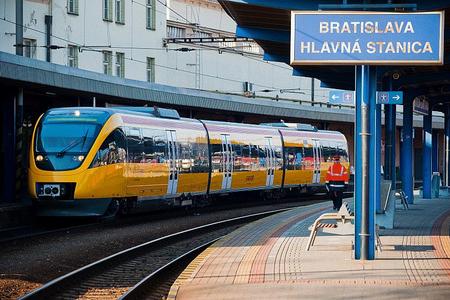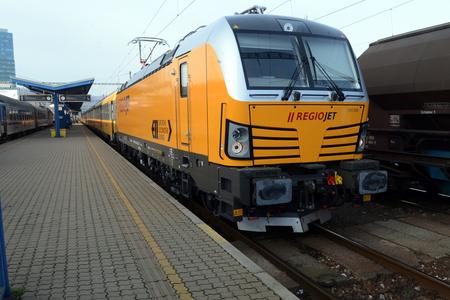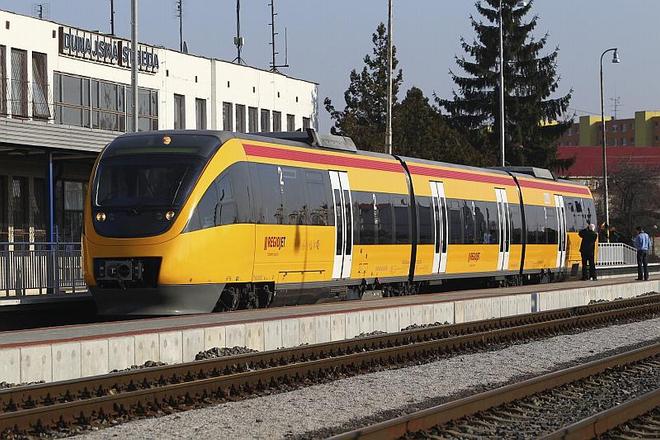The number of people commuting between Bratislava and Komárno (Nitra Region) by using trains operated by the private carrier RegioJet, increased to 3.8 million in 2018.
Compared with the previous year, it is a growth by 1 million passengers. As a result, it is necessary to come up with new ideas to increase the comfort of passengers.
Transport Minister Arpád Érsek (Most-Híd) has asked RegioJet to introduce double-decker trains on the railway route.
"That is the only way to increase the capacity and transport more passengers than currently," said the minister, as quoted in a press release.
Record high numbers
While the state-run railway passenger carrier ZSSK managed to transport roughly 800,000 passengers on the above-mentioned route in 2011, RegioJet figures quadrupled last year.

It is because RegioJet has joined the Integrated Transport System in the Bratislava Region, meaning that passengers from the outskirts of Bratislava use RegioJet trains as a form of public transport, too.
In addition, traffic restrictions in Bratislava have also contributed to a higher number of RegioJet passengers.
"We are intensively dealing with the situation, also because of the worsening traffic situation in Bratislava, which we must face," said Érsek.
RegioJet has already asked the Transport Ministry to assist in introducing double-deckers.
Technical permits
The company is now expected to present seven or eight ways to increase capacity on the Bratislava-Komárno route to the ministry.

"RegioJet sees it as one of the possibilities of reinforcing the capacity in the cooperation agreement with the ZSSK," said Aleš Ondrůj, spokesperson for RegioJet, as quoted in the press release. Ondrůj added that the ZSSK's double-decker trains are the only technically approved trains allowed on Slovakia's railways.
There is a lack of double-decker trains in Europe and other types of double-deckers would require further technical permits to be operated in Slovakia, the carrier added.
"We are ready to speed up the process for the necessary approval of such carriages by the Transport Authority (DÚ), in order to enable the trains to run as soon as possible," claimed Érsek.



 RegioJet now operates in Slovakia. (source: Tibor Somogyi)
RegioJet now operates in Slovakia. (source: Tibor Somogyi)